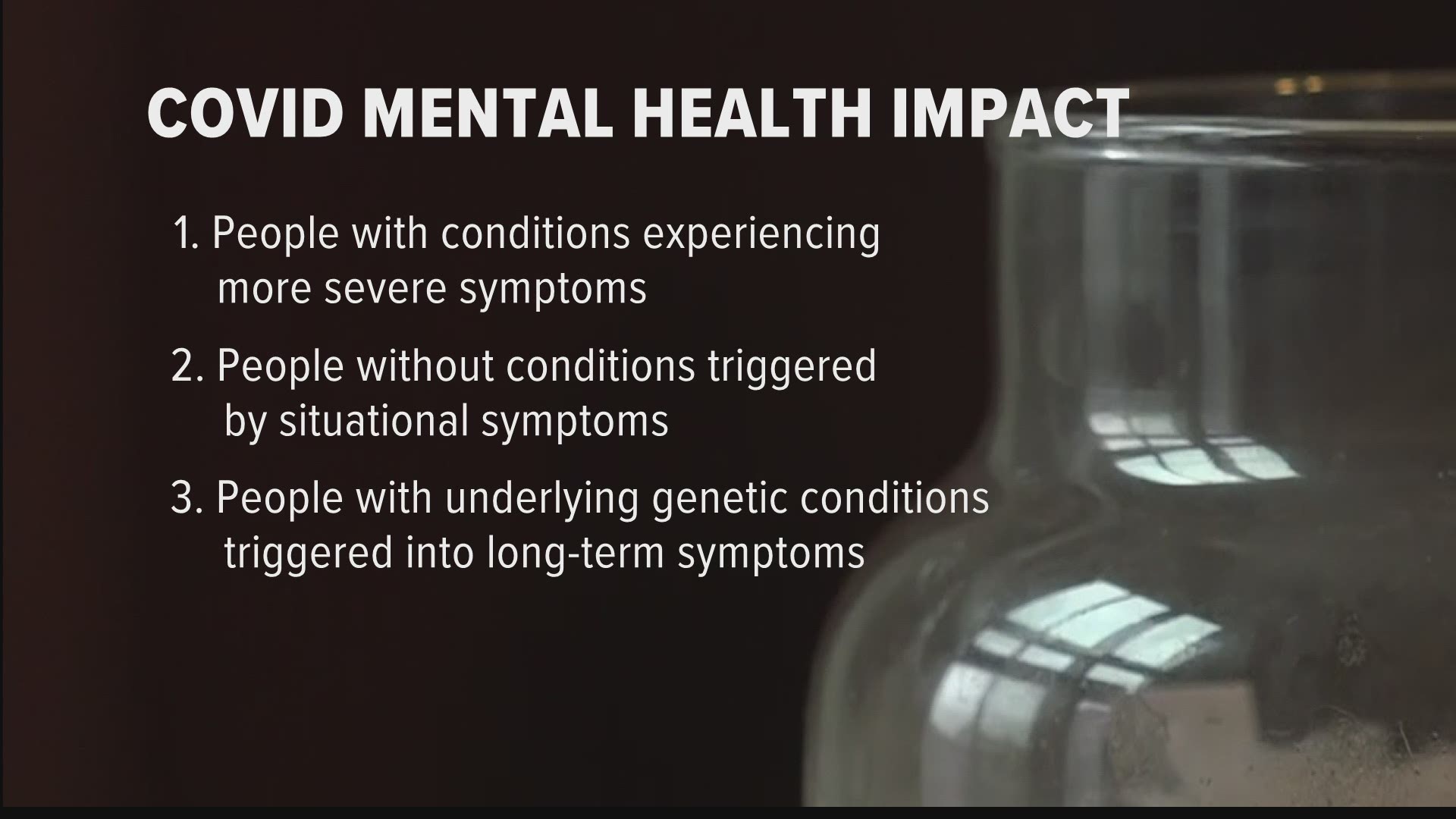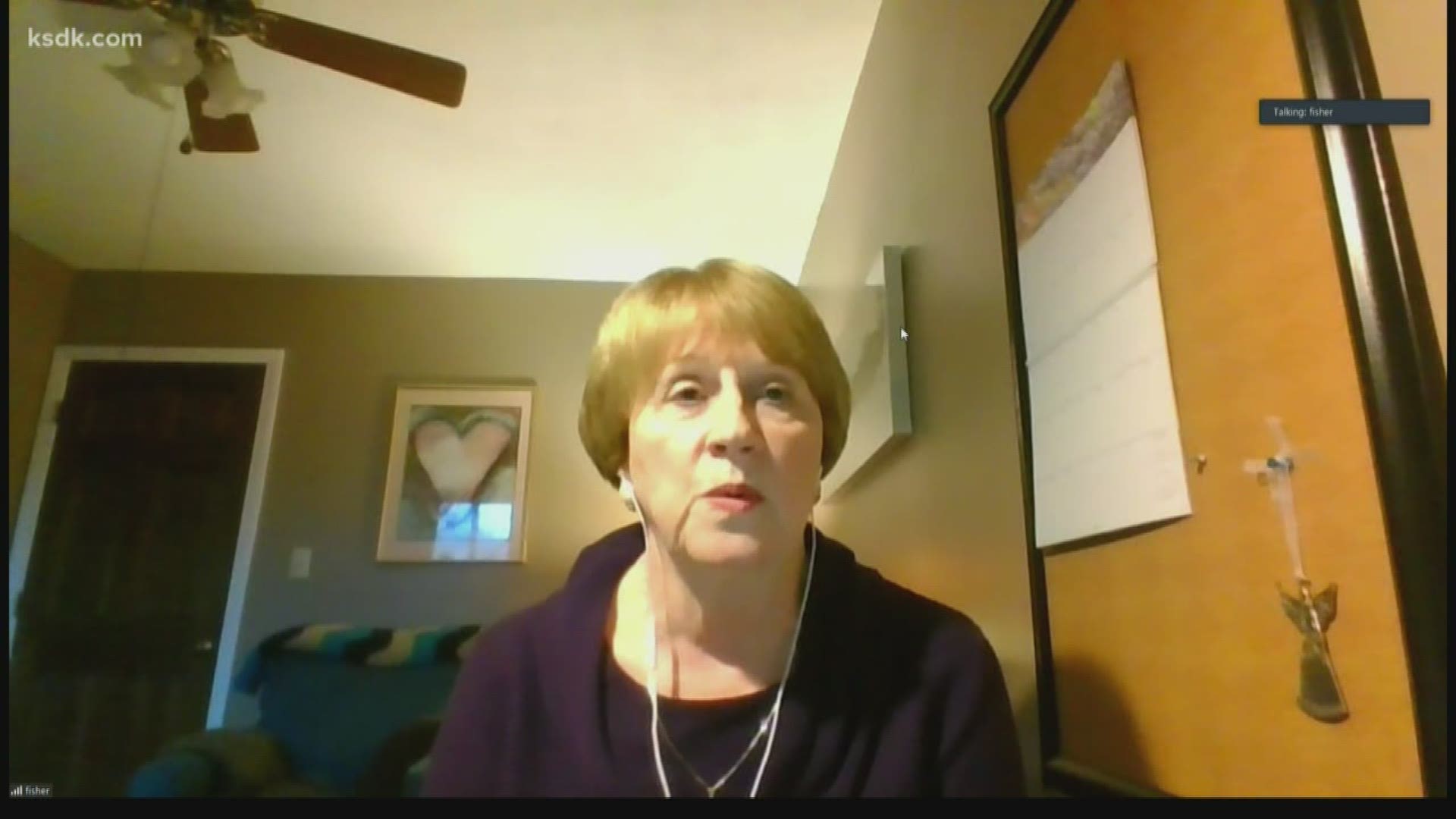ST. LOUIS — Each year, nearly 16,000 people in eastern Missouri are served by the resources offered by Mental Health America of Eastern Missouri.
Anne Shaw Heinrich, the organization's vice president of development, said that number includes the 500 to 700 people who call their helpline looking for various resources and the hundreds who attend groups to learn to cope with stress and anxiety. While those groups can't currently meet in person, there organization's resources are needed now, more than before.
"It definitely has increased anxiety levels," Connie Fisher, director of mental health promotion said. "We’re seeing, on our national screenings, that screenings for anxiety disorder have gone up and for depression also. Also, the levels are pretty high. Many of those people are people who have never sought treatment."
Heinrich said she anticipates a much higher number than usual 16,000 once the totals are calculated at the end of 2020. Why? Because so many people are seeking help as they battle the isolation, uncertainty and fear brought on by COVID-19.
“It’s like a perfect storm for mental illness to kick in or the perfect storm for situational anxiety or situational depression to kick in also, which might recover after this," Fisher said.
The word "might" is key.
Fisher said there are likely three categories of people experiencing symptoms of mental health disorders right now: those who have already been diagnosed with a condition and are experiencing more severe symptoms, those who don't suffer from a condition but are experiencing situational anxiety or depression or people who have always carried a gene for anxiety or depression but had never experienced symptoms until they were triggered by the fallout from COVID-19.
"If you inherited the predisposition it’s probably going to stay on," Fisher said. "That person’s going to need therapy. If it’s depression, they may need medication. The best thing to do is see a therapist or a doctor to help with that."
Mental Health America of Eastern Missouri offers free, five-minute online screenings for a number of conditions that can help you determine what they best method treatment are. You can also find multiple helplines, crisis lines and resources like free counselors who can work with patients who are currently without insurance.
Otherwise, Fisher said some keys to combating symptoms of anxiety and depression are to get enough sleep, exercise and eat well.
When talking to your kids, she said it's best to ask them what they already know about COVID-19, address any misconceptions and assure them that they are okay by clearly laying out the steps your family is taking to stay healthy. For high school seniors, and other groups who are missing milestones, she said the best way to cope is to have some sort of celebration that meets guidelines and plan for a second celebration later once they are lifted.
For grieving families, she said a difficult process is only made harder by the pandemic.
"This is not a normal year," Fisher said. "This is not a normal way for things to go. You just have to grieve that, and you might need grief counseling if you find that you just can't let it go."
Fisher said mental illness, like any other kind of illness, should be addressed and treated early before symptoms become difficult and expensive to treat. She said staying connected, self-care and letting go of the negative stigma attached to mental health is key to winning to fight.
"It is an illness of the brain," Fisher said. "It is not weakness. It is not something you did wrong. It is not something wrong with you. If you have diabetes, you go get it treated. If you have high blood pressure, you go get it treated. If you have mental illness, you should go get it treated. Sometimes that’s just counseling. Sometimes that’s medication. Sometimes it’s a combination. That’s how I like people to look at it- that it’s a mental illness that needs to be treated.”


